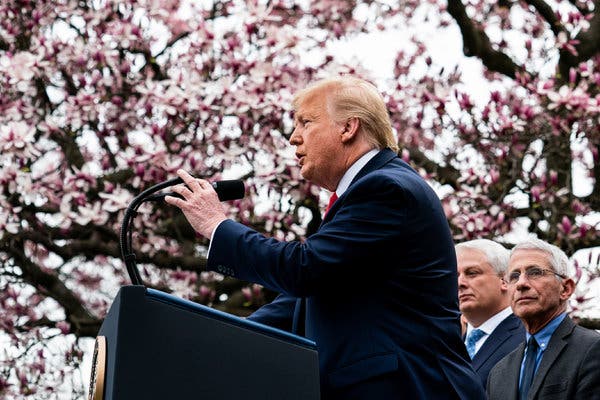History and polling suggest it’s really close, though perhaps with the slightest edge to Edwards.
Edwards is, by all accounts, a popular governor. His approval rating is north of 50% in pretty much every poll taken of the Louisiana electorate. He wins if this election is a referendum on his record.
Rispone hopes to capitalize on a trend of governor elections becoming increasingly nationalized. Republican President Donald Trump is popular in the state, and Rispone could be helped by the President’s visit to the Pelican State this week. Trump on Saturday urged Louisianans to vote for Rispone, tweeting that the GOP candidate would lower taxes and auto insurance rates in the state. (Trump attempted to help usher unpopular Republican Gov. Matt Bevin to victory in Kentucky, but the governor on Thursday conceded his close loss to Democrat Andy Beshear.)
We already saw the red lean of Louisiana in the first round of its gubernatorial election, a jungle primary in which all candidates regardless of party run against each other. Edwards received a little less than 47%, and the Democratic candidates combined for 47.4%. Rispone got 27%, and the Republican candidates combined got nearly 51.8%.
Read More
If turnout stayed the same and all the Democratic votes went to Edwards in the runoff and all the Republican votes went to Rispone, Rispone would win.
It’s not that simple, though. Turnout is likely to change, and history indicates that Edwards is likely to gain ground in the runoff. The black percentage of the electorate usually rises in runoff elections in Louisiana, according to files kept by the Louisiana Secretary of State. A look at the early vote indicates that pattern is holding in this gubernatorial election as well. Black voters in Louisiana, like they do nationally, lean heavily Democratic.
In part because of that changing turnout, major statewide runoffs in Louisiana have also produced more friendly results for Democrats. The margin between the Democratic and Republican candidates in the 2016 Senate runoff became 4 points more Democratic than in the first round, for example. And while there haven’t been many gubernatorial runoffs recently, the margin in last five Senate runoffs have been an average of 5 points more Democratic than in the first round.
If that average were applied to year’s gubernatorial election, it would give Edwards about a 1-point win. At a minimum, the race would be expected to be very close.
The limited polling backs up the idea that Edwards may have the slightest of edges. He’s up by a 49% to 47% over Rispone in an average of polls taken since the jungle primary, which is well within the margin of error. This does indicate that Edwards is garnering more support than his 47% in round one. Rispone is not getting all of the votes that went to fellow Republican Ralph Abraham in the first round of voting.
Given the tightness of the polling, it’s quite possible that Trump’s visit on Thursday puts Rispone over the top. If Rispone wins, Trump will surely (and rightfully) claim some of the credit.
If Edwards does pull it out, it will be the second time in two weeks when Trump’s touch wasn’t able to overcome local factors in a deep red state gubernatorial election.



